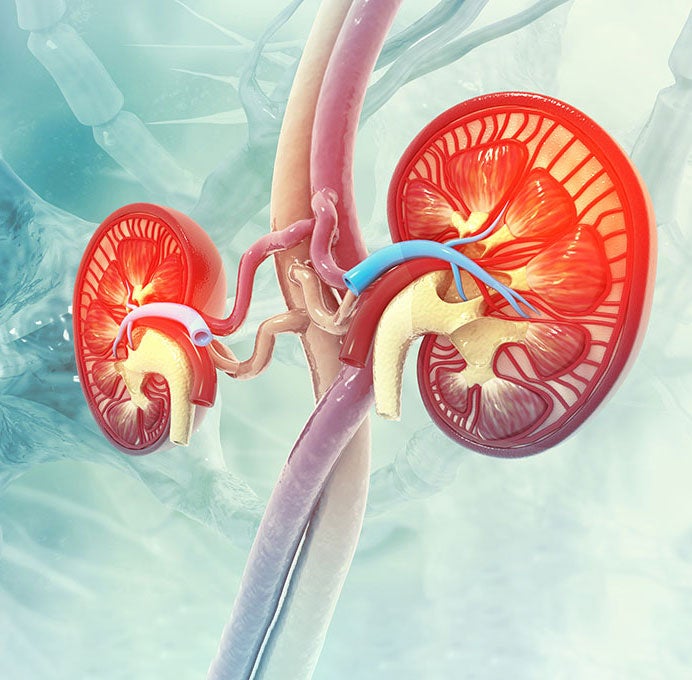Transplant Immmunity
Research activities in transplantation and transplant immunology at Penn Vet and Penn Medicine have contributed significantly to the current successful outcomes of organ transplantation.
Patients require an organ transplant when their own organs no longer function properly due to advanced disease or congenital disorders. Different organs can be transplanted including kidney, heart, lung, liver, pancreas, and intestine. The process involves surgically removing the organ from a living healthy donor (as for kidney transplants) or a donor who has recently died but who has an otherwise healthy functioning organ (for example heart and lungs) and surgically implanting it (transplant) into the patient with organ failure. The healthy organ then takes over the function of the diseased organ and enables the patients to live more normal lives.
Penn Vet has been at the forefront of feline kidney (renal) transplant medicine for over 25 years. Lillian Aronson has performed over 185 renal transplants in cats with kidney failure, through a highly successful feline renal transplant program.
Successful organ transplantation in dogs has been more challenging. Like humans, the major challenge is prevention of organ rejection which is mediated by the recipient’s immune system. Discovering ways to suppress immune-mediated rejection without causing significant morbidity and/or mortality in human and canine patients is the holy grail of transplant medicine and would be significant advance for transplantation in both species. The unique transplantation immunology expertise of Jim Riley and his exploration of cellular therapies to induce transplant tolerance, aims to improve outcomes for human and canine transplant patients.

